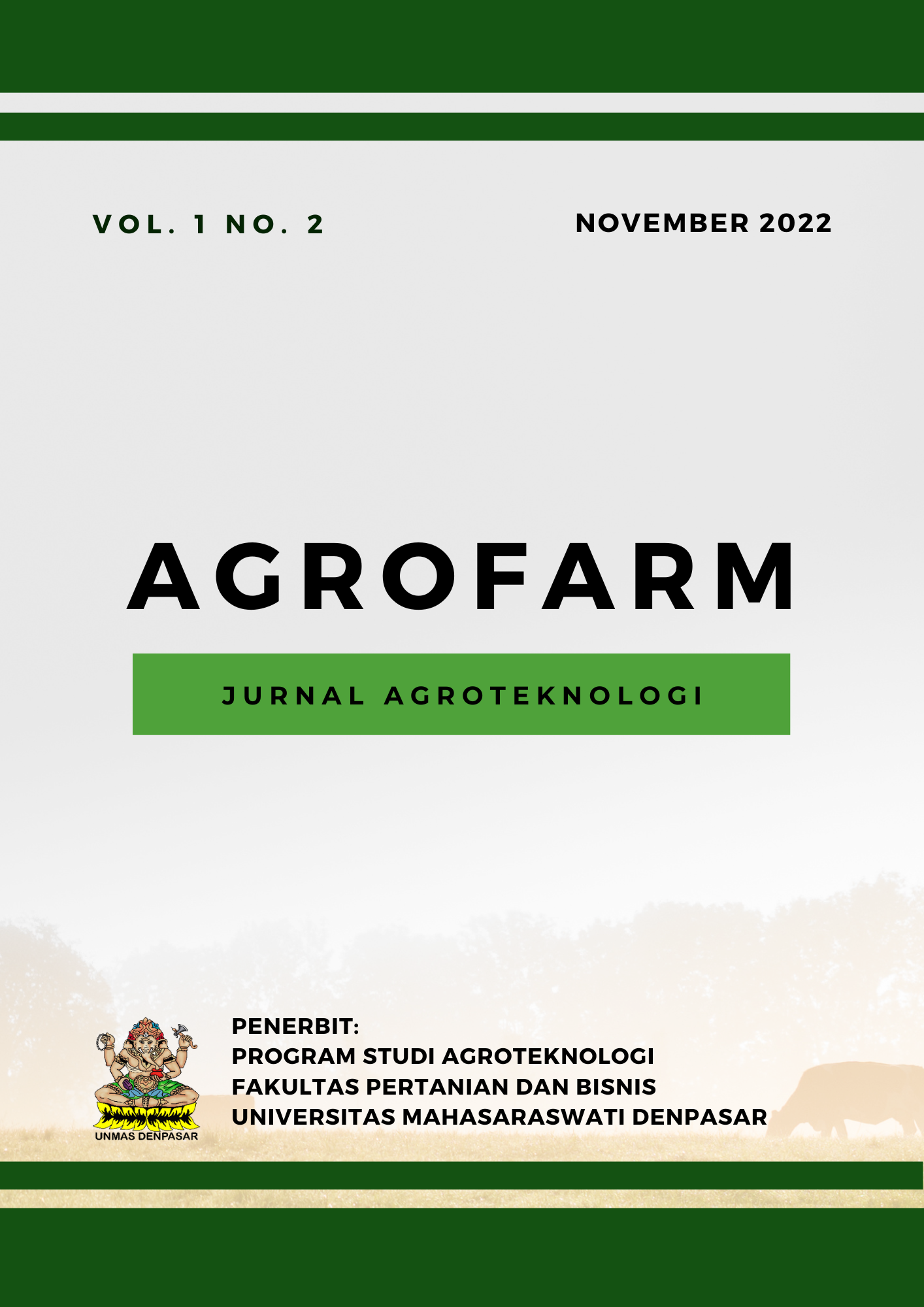Aplikasi Biochar Sekam Padi Terhadap Pertumbuhan dan Hasil Tanaman Sawi (Brassica Juncea L.)
Keywords:
biochar, risk husk, mustard plantsAbstract
Mustard plant as a vegetable food contains nutrients that are quite complete. So that, when consumed is very good for maintaining a healthy body. The development of mustard cultivation has good prospects to support efforts to improve community nutrition, expand job opportunities, and develop agribusiness. The objectives of this study were: 1). To determine the effect of giving rice husk biochar on the growth and yield of mustard plants. 2). determine the best dose of rice husk biochar on the growth and yield of mustard plants. The benefit of this study is 1). as information to the public, especially farmers about the benefits of Biochar rice husk on the growth and yield of mustard plants. 2). Providing information on the Biochar Dosage of rice husks that are effective against the growth and yield of mustard plants. This research was conducted from January 26 to March 18, 2021. This study uses the RAK method with six treatments, namely: control treatment (PO), Biochar treatment 5 ton/ha (PI), Biochar treatment 10 ton/ha (P2), Biochar treatment 15 ton/ha (P3), Biochar treatment 20 ton/ha (P4), and Biochar treatment 25 ton/ha (P5). Each treatment was repeated four times. So, the total of all treatments is twenty four (24) In testing the effect of rice husk biochar dosage on mustard plants, the application of 125 g /10 kg soil biochar rice husk gave the best growth results for all observed parameters, namely: plant height (cm), number of leaves (strands), leaf area (cm) , total plant fresh weight (g), and total plant oven dry weight (g).





